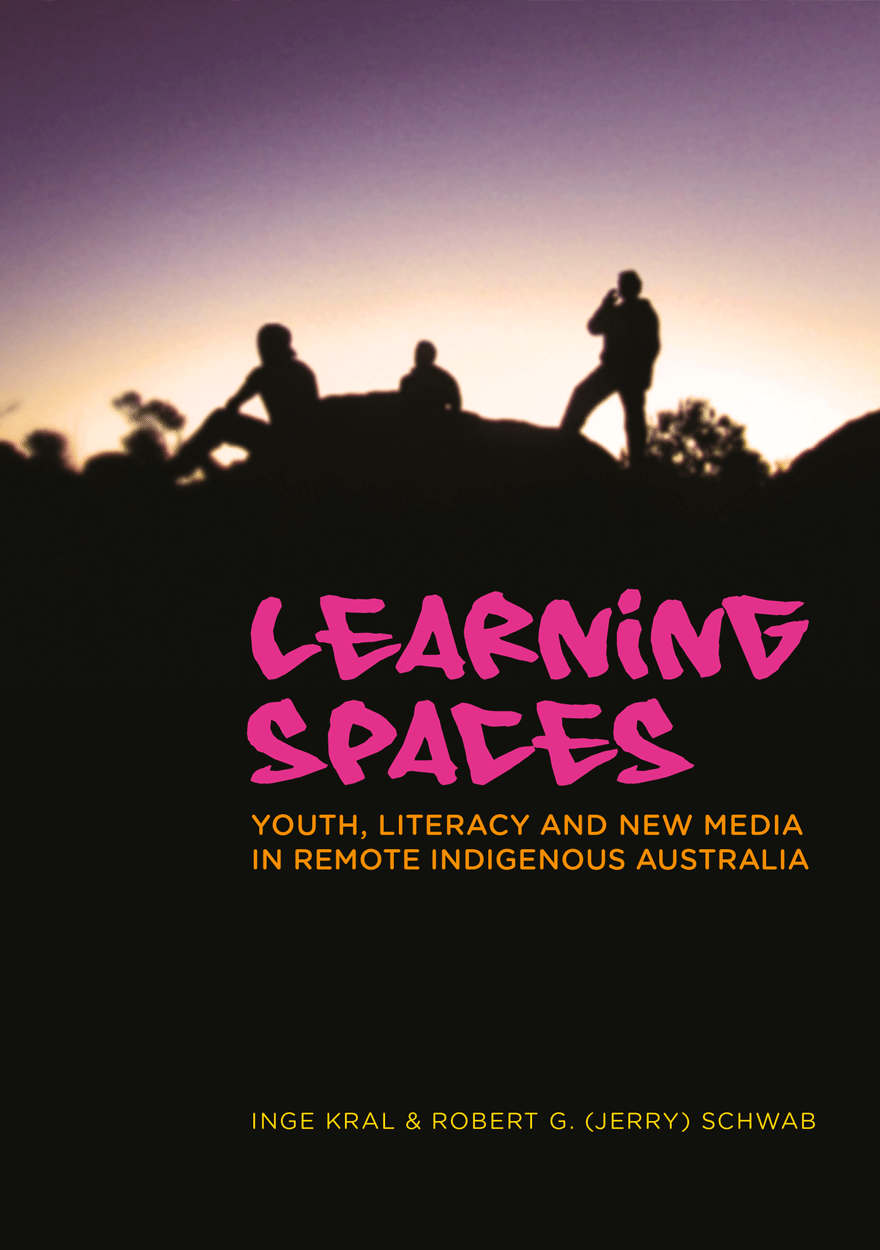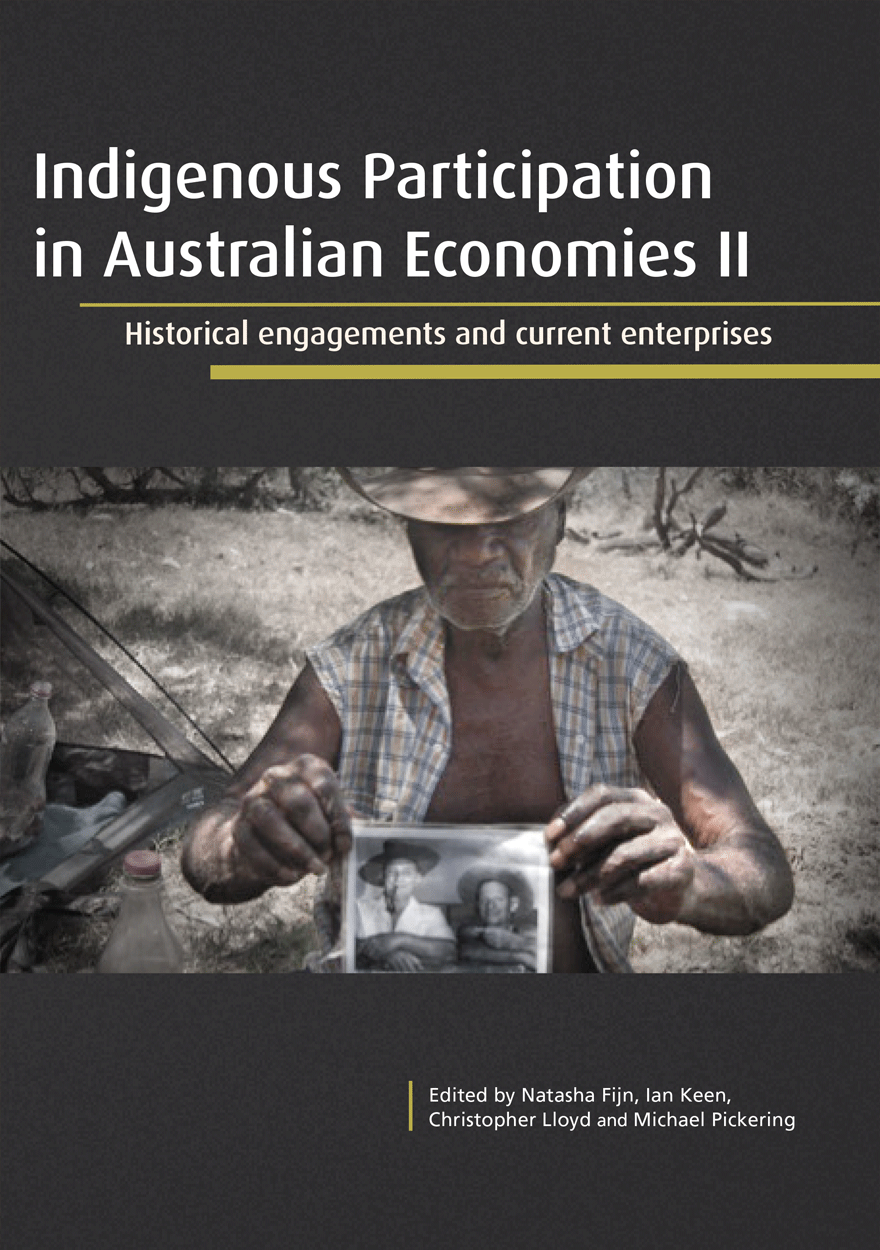Search titles
Displaying results 391 to 400 of 628.

Australian Humanities Review: Issue 52, 2012 »
Edited by: Monique Rooney, Russell Smith
Publication date: September 2012
Australian Humanities Review is a peer-reviewed interdisciplinary journal featuring articles, essays and reviews focusing on a wide array of topics related to literature, culture, history and politics.
Download for free
Not available for purchase

Indigenous Peoples' Innovation »
Intellectual Property Pathways to Development
Edited by: Peter Drahos, Susy Frankel
Publication date: August 2012
Traditional knowledge systems are also innovation systems. This book analyses the relationship between intellectual property and indigenous innovation. The contributors come from different disciplinary backgrounds including law, ethnobotany and science. Drawing on examples from Australia, New Zealand and the Pacific Islands, each of the contributors explores the possibilities and limits of intellectual property when it comes to supporting innovation by indigenous people.

Shaping a Nation »
A Geology of Australia
Edited by: Richard Blewett
Publication date: August 2012
Shaping a Nation: A Geology of Australia is the story of a continent’s geological evolution as seen through the lens of human impacts. Exploring the geology, resources and landscapes of Australia, the book reveals how these have helped to shape this nation’s society, environment and wealth. Presented in a refreshingly non-linear format, the book summarises much of what we know about this country’s geological history, discussing the fossil record and evolution of life across the continent, describing its mineral and energy reserves, and revealing the significance of its coastal and groundwater systems.
The book also explores some of the challenges and opportunities presented by Australia’s rich geological heritage, and outlines the issues they present in Australian society today. Based on much of the latest science, the book reveals Australia’s expertise in the geosciences and reinforces the vital role they play in informing its present and future development.
In presenting the latest geoscientific knowledge, Shaping a Nation is vividly illustrated by technical drawings and figures and accompanied by stunning photography that reveals the extraordinary beauty of Australia’s geology and landscapes. For the avid reader, an accompanying DVD hosts extensive appendices, including supplementary reading and reference material, maps, movies and an interactive 3D model showcasing many geoscience datasets.
Note for viewing ebook: Because of the large size of the ePub, right-click on the link in the Media Download page and first save it to your computer. Then transfer it to your e-reader device. The ePub is suitable for viewing on iPad and Android devices.
Printed copies are available for $70.00 AUD incl GST (plus shipping) through Geoscience Australia.

Proceedings of the 7th University House Wine Symposium »
Edited by: Kiaran Kirk, John Richards
Publication date: August 2012
Even before University House was opened in 1954, a House Wine Committee had been formed, leading to the 1st University House Wine Symposium, held in 1956. These proceedings record the 7th University House Wine Symposium, held in 2011 to commemorate the 40-year anniversary of the first plantings that have led to the internationally acclaimed wines of the Canberra District Wine Region.

Learning Spaces »
Youth, Literacy and New Media in Remote Indigenous Australia
Authored by: Inge Kral, Robert G. Schwab
Publication date: August 2012
'This work offers us the rare opportunity to step inside innovative uses of technologies, mergers of global technologies into local knowledge, and community advocacy of local history and ideology…The young people who move through these pages are motivated and proud of having had the opportunities that make possible their linking together of historical knowledge and contemporary means of communication and performance. The means illustrated here have enabled them to develop skills that will help them move into the future as adults engaged with the health and life of their own communities, connected to their language and culture as their way of being in the world of the local so as to know the world of the global.'
Professor Shirley Brice Heath
Stanford University, USA

Engendering Violence in Papua New Guinea »
Edited by: Margaret Jolly, Christine Stewart, Carolyn Brewer
Publication date: July 2012
This collection builds on previous works on gender violence in the Pacific, but goes beyond some previous approaches to ‘domestic violence’ or ‘violence against women’ in analysing the dynamic processes of ‘engendering’ violence in PNG. ‘Engendering’ refers not just to the sex of individual actors, but to gender as a crucial relation in collective life and the massive social transformations ongoing in PNG: conversion to Christianity, the development of extractive industries, the implanting of introduced models of justice and the law and the spread of HIV. Hence the collection examines issues of ‘troubled masculinities’ as much as ‘battered women’ and tries to move beyond the black and white binaries of blaming either tradition or modernity as the primary cause of gender violence. It relates original scholarly research in the villages and towns of PNG to questions of policy and practice and reveals the complexities and contestations in the local translation of concepts of human rights. It will interest undergraduate and graduate students in gender studies and Pacific studies and those working on the policy and practice of combating gender violence in PNG and elsewhere.

Indigenous Participation in Australian Economies II »
Historical engagements and current enterprises
Publication date: July 2012
This is the second volume to emerge from a project on Indigenous participation in the Australian economy, funded by an Australian Research Council (ARC) Linkage Grant, and involving the cooperation of the School of Archaeology and Anthropology at The Australian National University and the National Museum of Australia. The Chief Investigators were Ian Keen, Chris Lloyd, Anthony Redmond, the Partner Investigator was Mike Pickering, Fiona Skyring was an associate researcher on the project, and Natasha Fijn was research assistant. The present volume arises out of a conference in Canberra on Indigenous Participation in Australian Economies at the National Museum of Australia on 9–10 November 2009, which attracted more than thirty presenters. The diverse themes included histories of economic relations, the role of camels and dingoes in Indigenous–settler relations, material culture and the economy, the economies of communities from missions and stations to fringe camps and towns, the transitions from payment-in-kind to wage economies and Community Development Employment Projects, the issue of unpaid and stolen wages, local enterprises, and conflicts over development. Sixteen of those papers have been developed as chapters in this volume, together with a foreword by Professor Jon Altman. This book comprises a companion volume to Indigenous Participation in Australian Economies: Historical and Anthropological Perspectives, published by ANU Press in 2010.

A Trial Separation »
Australia and the Decolonisation of Papua New Guinea
Authored by: Donald Denoon
Publication date: May 2012
When it came in September 1975, Papua New Guinea’s independence was marked by both anxiety and elation. In the euphoric aftermath, decolonisation was declared a triumph and immediate events seemed to justify that confidence. By the 1990s, however, events had taken a turn for the worse and there were doubts about the capacity of the State to function. Before independence, Papua New Guinea was an Australian Territory. Responsibility lay with a minister in Canberra and services were provided by Commonwealth agencies. In 1973, Prime Minister Gough Whitlam declared that independence should be achieved within two years. While Australians were united in their desire to decolonise, many Papua New Guineans were nervous of independence.
This superlative history presents the full story of the ‘trial separation’ of Australia and Papua New Guinea, concluding that — given the intertwined history, geography and economies of the two neighbours — the decolonisation project of ‘independence’ is still a work in progress.

Experiments in Modern Living »
Scientists’ Houses in Canberra 1950–1970
Authored by: Milton Cameron
Publication date: May 2012
When a group of brilliant young scientists arrived in Australia’s national capital after World War II to take up leading roles in the establishment of national research institutions, they commissioned Australia’s leading architects to design their private houses. The houses that resulted from these unique collaborations rejected previous architectural styles and wholeheartedly embraced modernist ideologies and aesthetics. The story of how these progressive clients contributed to the innovative design of their houses brings fresh insights to mid-twentieth-century Australian domestic architecture and to Canberra’s rich cultural history.

With the Benefit of Hindsight »
Valedictory Reflections from Departmental Secretaries, 2004–11
Publication date: April 2012
Secretaries of government departments in Australia are the bureaucratic leaders of their generation. They are ambitious, highly-talented executives who have risen to the very pinnacle of their chosen vocation – public service to the Australian nation – usually after having spent most, if not all, of their professional careers dedicated to the public service. They serve governments as their top advisers and in policy terms are often some of the most important decision-makers in the country.
This collection brings together the valedictory speeches and essays from a departing group of secretaries (and one or two other equivalent agency heads) who left the Australian Public Service between 2004 and 2011. Over this period of time it gradually became accepted that departing secretaries and heads of significant agencies would present a valedictory address to their peers at a public farewell function. The first two speeches in this collection were initiated informally and given at functions organised by their agencies; in 2005 the process was formalised with the Australian Public Service Commission acting as organiser.
These contributions contain reflections, commentaries, occasional fond memories or key turning-points in careers, critiques of changes that have occurred and an outline of the remaining challenges their successors will face as the public administrators of tomorrow.
From the outset it is clear that there is no uniform message, no single narrative levelled either in praise or in criticism, other than pride in the public service and strong belief in the contribution it makes to the Australian community. They have their own personal ‘takes’ on how the public service looks to them, on its performance and on the challenges confronting public administration into the future. Most spend some time looking back, reflecting on the extent of change that has occurred over the length of their careers; but equally importantly they look forward, anticipating future policy dilemmas and capacity challenges.



